Radiofrequency Ablation (RFA) for Benign Thyroid Nodules
What is Radiofrequency Ablation?
Radiofrequency ablation (RFA) is a minimally invasive procedure used to treat benign thyroid nodules, which are abnormal growths of cells within the thyroid gland. This is a pinhole procedure and involves the use of radiofrequency energy to heat and destroy the targeted area, in this case, the thyroid nodule. At MIOT, we have a dedicated and experienced interventional radiology department backed by world-class infrastructure to perform such procedures.

Target
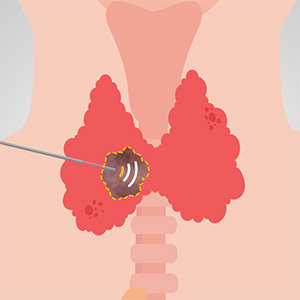
Treat
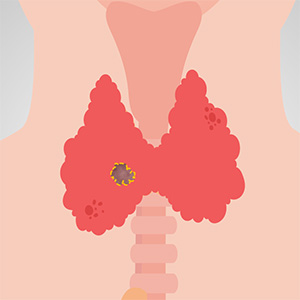
Shrink


What are the benefits of treating thyroid nodules (benign) with RFA?
This procedure is generally considered safe and effective, with low rates of complications. It is often preferred over surgery for benign thyroid nodules or for patients who are not suitable candidates for surgery due to factors such as age or underlying health conditions. Additionally, it can avoid the need for surgical removal of the entire thyroid gland, which would require patients to be on medications for the rest of their lives.
Advantages of Radio Frequency Ablation over Conventional Surgery (Thyroidectomy)
Advantages of Radio Frequency Ablation
- Minimally invasive (Pin hole)
- No anaesthesia
- No scar
- No admission
- Shorter Hospital Stay
- Preserves the thyroid
- No risks
- No need for checking calcium levels
- No need of long term medications
Disadvantages of Conventional Surgery
- Life-long scar in the neck region
- Life-long thyroid hormone tablets
- Risk of injury to the laryngeal nerve resulting in temporary or permanent hoarseness of voice
- Risk of acute respiratory distress if both laryngeal nerves are injured (rare)
- Damage to the parathyroid glands that control blood calcium levels leads to low parathyroid hormone (hypoparathyroidism) and low blood calcium (hypocalcaemia)
- Difficulty swallowing can be a temporary problem
- Injury to the trachea can result in shortness of breath after coughing
RFA Procedure (via a Pinhole) done by MIOT
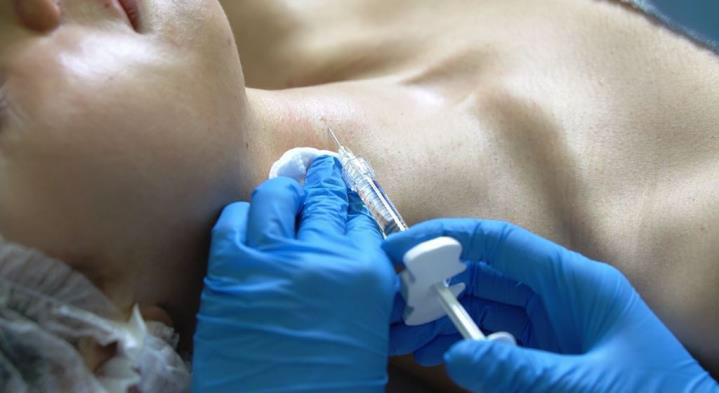
The procedure was done under local anaesthesia as no incision was required.

A special probe was passed through her thyroid gland and directly into the nodule with the guidance of ultrasound.
Conventional Surgery – Thyroidectomy
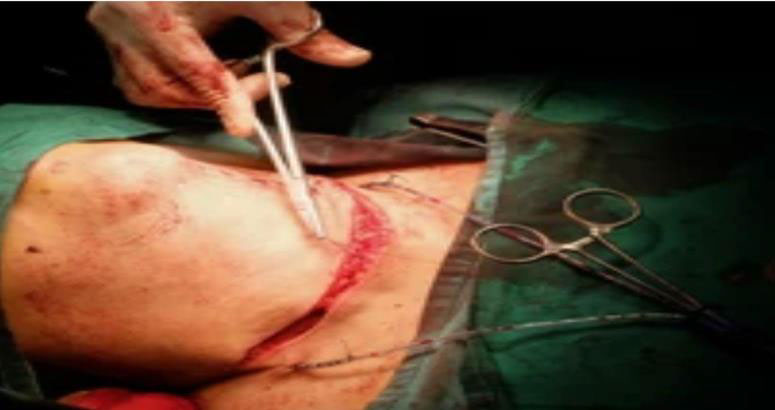
Thyroidectomy is usually performed with general anasthesia involving a large incision in the neck region.
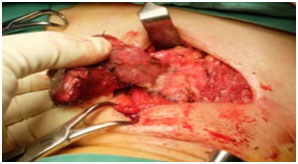
The entire thyroid gland has to be removed surgically.
What can I expect during the RFA procedure?
The procedure typically lasts about 45 minutes to 1 hour, depending on the size of the nodule being treated. Before undergoing RFA, patients typically undergo a thorough evaluation, including imaging studies such as ultrasound, to assess the size and characteristics of the thyroid nodule. Local anesthesia may be administered to numb the area where the RFA probe will be inserted. Ultrasound imaging is used to guide the insertion of the RFA probe into the thyroid nodule, helping the physician accurately target the nodule and monitor the procedure in real-time. Once the nodule is accurately targeted, a thin needle-like probe, which emits radiofrequency energy, is inserted into the nodule through the skin. The radiofrequency energy emitted by the probe heats up the tissues within the nodule, causing coagulative necrosis (cell death) and shrinkage of the nodule.
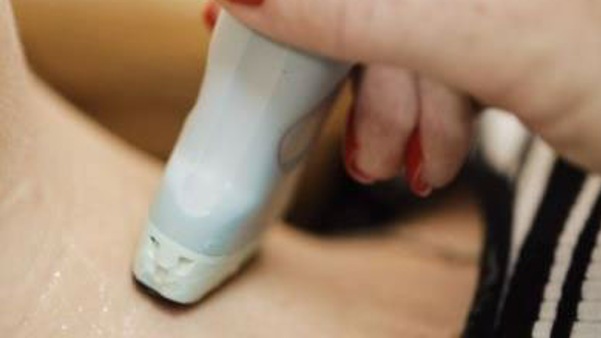
Real-time Ultrasound Imaging
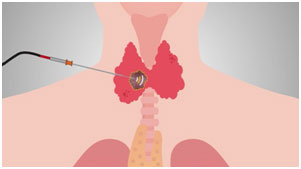
Radiofrequency waves emitted
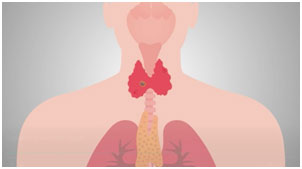
Thyroid nodule shrinks within few months
Post-procedure Care & recovery
After the RFA procedure, patients may experience mild discomfort or soreness at the treatment site, which can typically be managed with over-the-counter pain medications. Usually patients get discharged the same day or may extend as per the Specialists advice. There is no scar from the procedure. Most patients can resume normal activities shortly after the procedure. Patients typically undergo follow-up evaluations, including ultrasound imaging, to monitor the response to RFA treatment.
The 1st Radiofrequency Ablation procedure for a Thyroid Nodule in Tamil Nadu, performed at MIOT International.
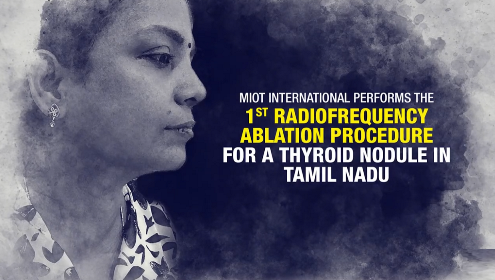
MIOT’s interventional radiology team successfully treated a patient who had a swelling in her throat, leading to the diagnosis of a 6 cm large nodule in her thyroid gland through a minimally invasive Radiofrequency Ablation (RFA) procedure.
Require more information?
If you have any questions regarding Radiofrequency Ablation (RFA) for Benign Thyroid Nodules or if you would like to determine if you are suitable for the procedure, please contact us.
To consult our Interventional Radiology Specialist +91 9841160194 or enquire online




